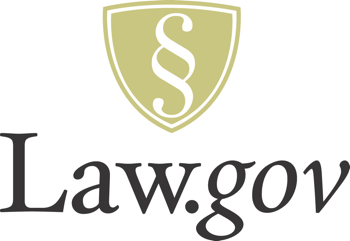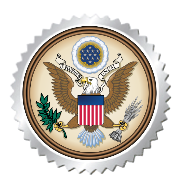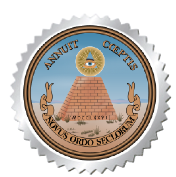ABOUT LAW.GOV
Law.Gov is an idea, an idea that the primary legal materials of the United States should be readily available to all,
and that governmental institutions should make these materials available in bulk as distributed, authenticated,
well-formatted data.
To make this idea a reality, a series of workshops were held throughout the country, resulting in a consensus
on 10 core principles.
LAW.GOV PRINCIPLES AND DECLARATION
The primary legal materials of the United States are the raw materials of our democracy. They should be made more broadly available to enable an informed citizenry.
Primary legal materials include documents of primary authority issued by governmental bodies, such as court opinions, statutes, and regulations. They also include the supporting documents and other media issued and maintained by those bodies, such as dockets, hearings, forms, oral arguments, and legislative histories. These materials can be found in every branch, at every level, national, tribal, state and local, and should be available to anyone with the will and the heart to obtain them.
The following principles should govern the dissemination of primary legal materials in the United States:

- Direct fees for dissemination of primary legal materials should be avoided.
- Limitations on access through terms of use or the assertion of copyright on primary legal materials is contrary to long-standing public policy and core democratic principles and is misleading to citizens.
- Primary legal materials should be made available using bulk access mechanisms so they may be downloaded by anyone.
- The primary legal materials, and the methods used to access them, should be authenticated so people can trust in the integrity of these materials.
- Historical archives should be made available online and in a static location to the extent possible.
- Vendor- and media-neutral citation mechanisms should be employed.
- Technical standards for document structure, identifiers, and metadata should be developed and applied as extensively as possible.
- Data should be distributed in a computer-processable, non-proprietary form in a manner that meets best current practices for the distribution of open government data. That data should represent the definitive documents, not just aggregate, preliminary, or modified forms.
- An active program of research and development should be sponsored by governmental bodies that issue primary legal materials to develop new standards and solutions to challenges presented by the electronic distribution of definitive primary legal materials. Examples include the automated detection and redaction of private personal information in documents.
- An active program of education, training, and documentation should be undertaken to help governmental bodies that issue primary legal materials learn and use best current practices.
Adherence to these principles by governmental bodies is not just good for democracy and justice, it will spur innovation and will encourage:
- Broader use of legal materials in all parts of our education system, including our law schools.
- Researchers in law schools, universities, and other research institutions to have broader access to bulk data, spurring important research on the functioning of our government.
- Innovation in the legal information market by reducing barriers to entry.
- Savings in the government's own cost of providing these materials through adherence to best current practices.
- Small businesses to understand rules and regulations they must deal with, reducing their costs and increasing their effectiveness.
- Increased foreign trade by making it easier for our foreign partners to understand our laws.
- Better access to justice by making legal information more broadly available to citizens.
How we distribute the raw materials of our democracy is a foundational issue in our system of government. Access to the raw materials of our democracy is a prerequisite for the rule of law and access to justice and makes real the principles of equal protection and due process.
With the Consent of the Co-Convenors of Law.Gov:
| Jack M. Balkin Knight Professor of Constitutional Law and the First Amendment Yale Law School | Robert C. Berring, Jr. Walter Perry Johnson Professor of Law Berkeley Law, University of California | James Boyle William Neal Reynolds Professor of Law Duke Law School | |
| Nicholas Bramble Postdoctoral Associate in Law Yale Law School | Tom R. Bruce Director, Legal Information Institute Cornell Law School | Richard A. Danner Archibald C. & Frances Fulk Rufty Research Professor of Law Duke Law School | |
| Laura E. DeNardis Executive Director, Information Society Project Yale Law School | Edward W. Felten Professor of Computer Science & Public Affairs Princeton University | Jerry Goldman Professor & Director, Oyez Project Northwestern University | |
| Joseph Lorenzo Hall Visiting Postdoctoral Research Associate UC Berkeley and Princeton University | Jennifer Jenkins Director, Center for the Study of the Public Domain Duke Law School | Mitchell Kapor Trustee Mitchell Kapor Foundation | |
| S. Blair Kauffman Law Librarian and Professor of Law Yale Law School | Mark A. Lemley William H. Neukom Professor of Law Stanford Law School | Lawrence Lessig Professor of Law Harvard Law School | |
| Paul Lomio Director, Robert Crown Law Library Stanford Law School | Carl Malamud President Public.Resource.Org | Harry S. Martin III Librarian & Professor of Law Emeritus Harvard Law School | |
| Peter W. Martin Jane M.G. Foster Professor of Law Cornell Law School | John Mayer Executive Director Center for Computer-Assisted Legal Instruction | Judy Meadows State Law Librarian State Law Library of Montana | |
| Paul Ohm Associate Professor of Law and Telecommunications University of Colorado Law School | Tim O'Reilly Chief Executive Officer O'Reilly Media | John G. Palfrey Henry N. Ess III Librarian & Professor of Law Harvard Law School | |
| Pamela Samuelson Richard M. Sherman Distinguished Professor of Law Berkeley Law, University of California | Stuart Sierra Assistant Director, Program on Law and Technology Columbia Law School | Stephen Schultze Associate Director, Center for Information Technology Policy Princeton University | |
| Tim Stanley Chief Executive Officer Justia | Erika V. Wayne Deputy Director, Robert Crown Law Library Stanford Law School | Christopher Wong Postgraduate Fellow New York Law School | |
| Tim Wu Professor of Law Columbia Law School | Harlan Yu Doctoral Student in Computer Science Princeton University | Jonathan Zittrain Professor of Law & Computer Science Harvard Law School |
Institutional Affiliations for Identification Purposes Only.
THE LAW.GOV WORKSHOPS
Fifteen Law.Gov workshops were held in 2010 beginning at the Stanford Law School in January and ending
at the Harvard Law School in June. This open, inclusive process had over 600 attendees and included
an in-depth examination of issues such as privacy, technical details of document dissemination,
authentication, copyright, and other aspects of the distribution of primary legal materials. Quite
a few resources are available on-line for those who wish to learn more about this process:
A number of Law.Gov initiatives will be announced this fall, including procedures for the drafting and submission of report materials to relevant authorities, further steps for the National Inventory of Legal Materials, and more details on the creation of reference archives for selected jurisdictions.
REGISTRY OF RESPONSES
Support for the Law.Gov Process
In addition to the support from our co-conveners and their host institutions, support for Public.Resource.Org and Law.Gov have been provided by:
|
|
You may find more information about Public.Resource.Org, a 501(c)(3) nonprofit corporation, on our “about” page.

